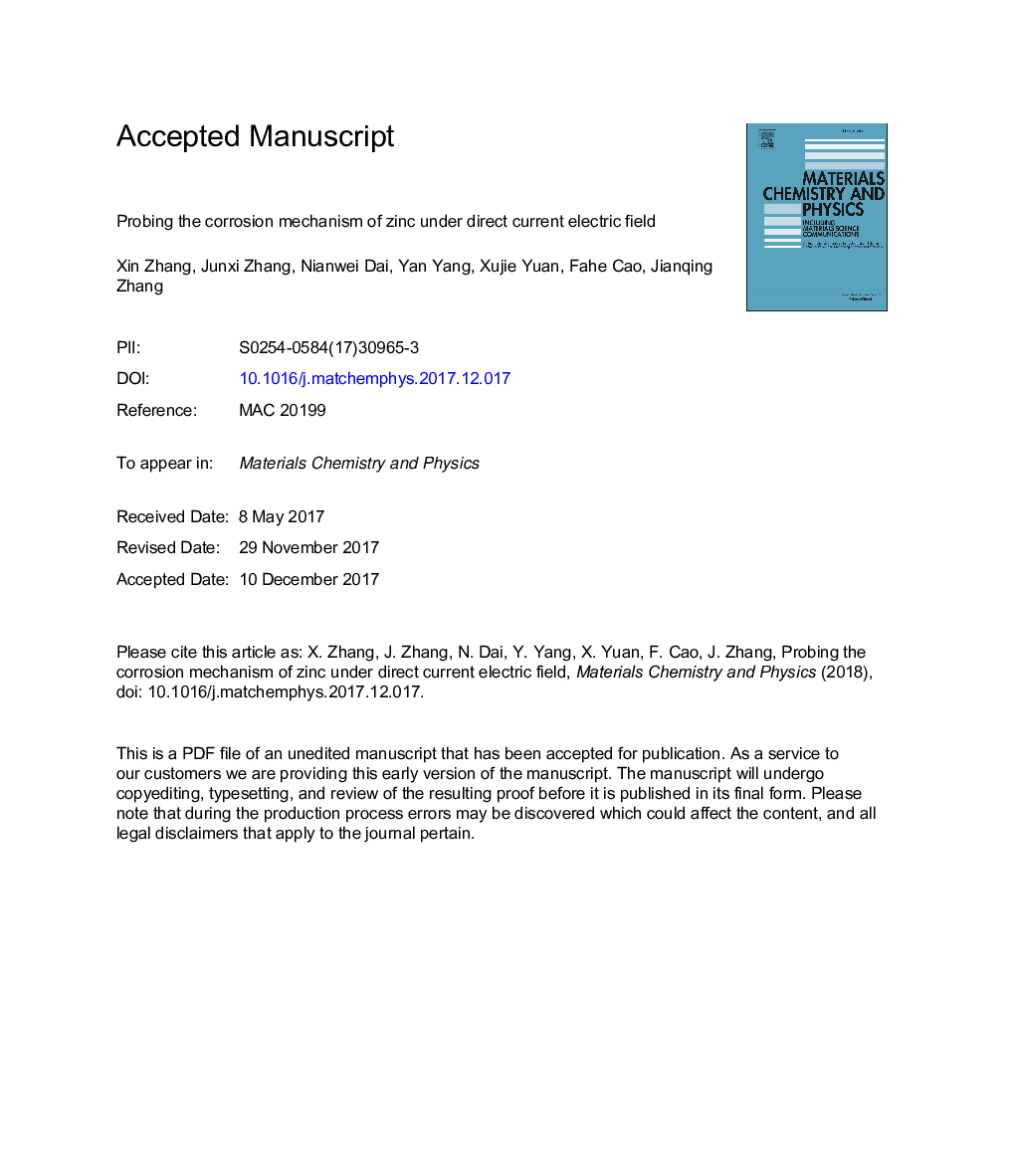| Article ID | Journal | Published Year | Pages | File Type |
|---|---|---|---|---|
| 7922191 | Materials Chemistry and Physics | 2018 | 29 Pages |
Abstract
The influence mechanism of a direct current (DC) electric field on the corrosion behaviour of zinc in a simulated industrial environment was studied by using weight loss measurement, electrochemical tests, XRD and SEM/EDS techniques. The results show that the corrosion rate of zinc increased with the increase of DC electric field intensities. The main corrosion products formed on the sample in ZnSO4 solution are Zn(OH)2, ZnO, Zn5(OH)6(CO3)2 and Zn4SO4(OH)6.5H2O. It was found that the DC electric field enables OHâ and SO42â ions to migrate from the solution/electrode interface to the upper layer of the solution quickly. Thus it can change the reaction site of the formation of Zn4SO4(OH)6.5H2O and can increase the quantity of the porous hexagonal plate Zn4SO4(OH)6.5H2O. All these features can promote the corrosion rate of zinc.
Related Topics
Physical Sciences and Engineering
Materials Science
Electronic, Optical and Magnetic Materials
Authors
Xin Zhang, Junxi Zhang, Nianwei Dai, Yan Yang, Xujie Yuan, Fahe Cao, Jianqing Zhang,
